|
A friend of mine said he taught to make a living, I told him that I taught to make a difference.
Later that day I wrote this: Teachers are really in the business of creating change – that's our mission. We strive to change how people think and how they understand the world. If our student is unchanged by the end of the lesson, we’ve failed – this is what teaching is really about, isn’t it? It’s not about syllabus, content or lesson plans – it’s about making a connection and effecting change in our students. If we are exceptional we get to re-ignite the spark – the little tiny spark of the child that "They" didn’t manage to stamp-out or socialise out of us. It’s always there, waiting for a safe place to flare back up with ferocious intensity. As teachers, we’re there to fan the spark into an ember into a flame, into a roaring inferno of joyous exploration , creativity and fun. Woven through the fabric of every lesson or learning objective is the desire to lift our students, so that they can see themselves further down the road, to see a vision of themselves as better and more capable – to instill the skills, ideas and principles they need and to guide them to the point where their reality catches up with that vision. And we teachers should infect our students with our enthusiasm, our passion for the subject, our curiosity and energy – not flatline them with boring "same-old, same-old lessons" – that turn them off to learning. We we can’t let that happen. And finally - if we can – let’s make it fun. Let's be se silly, irreverent, playful – perhaps even vulgar or rude. Let's do whatever it takes to perk-up things up: humour, movement, energy and smiles can make a game of learning. When we allow students to use their inborn ability to learn by being playful, I believe we’ve given them back their birthright – because that’s how little kids are, before it is "educated" out of them. I have a lot of adult clients, and this is by far the most important thing I do for them. Yes, they learn guitar, but more than that, they learn to Play, with a capital P. It’s the teacher's duty to help our students – I think of it as reaching back from a forward position – ahead of them – and pulling them forward, faster and more securely than they could do for themselves. Humans are social animals, and we are all at our best when we are absorbed in important work in the service of others – there’s no better way to spend your day, in my opinion. And finally, we get to ask them the question – “what else do you want?”... The subtext of what we do as teachers should always be: “you’re able to learn quickly and to understand so much... what else would you like to be good at, have, do or be in your life?” And when our students leave us – for university, a new job, a new home, or even pass away - they leave behind a trace of themselves, and they take a part of us with them.
3 Comments
The Thursday Thesis - 30/4/2020
I love teaching guitar! This won’t surprise any of my guitar students – they’re used to me grinning and laughing during lessons. What does surprise them though is the simplicity of many of their favourite songs. It’s a funny thing, but it keeps on happening. Heads are shaken, brows furrow, and "it can't be that easy..." is regularly heard. It's as though I'm breaking some kind of rule, making playing guitar so simple and easy... But that's because there's a type of thinking error known as misattribution – the assigning of qualities to a person or thing which has nothing to do with the real qualities they possess. I did it myself for years – decades actually – and it really didn’t help at all. These days, not so much. Here's how the misattribution error goes for music fans and wannabe guitar players, singers, and just about everybody else:
Obviously, there’s no causal link between liking a piece of music and it being a technical challenge to play. In fact, the more popular a piece of music is the less complex it tends to be. If you don’t believe me, just listen to the mainstream radio stations: most of what you’ll hear are short loops of a few simple chords, assembled into blocks (usually called introduction, verse, chorus, middle 8, bridge and outro) and produced to make them more interesting and variable than their deep structure really is. I’m not knocking it – I’m just pointing out that the reality of music is not what we think it is, most of the time. So reflect on this little thought: before music became something you bought – as a recording of some type – music was something you did; something you made for yourself, just for the fun of it. Back then, almost everyone would get up and sing, play something and join in with whoever else was playing. Back then it was easy and commonplace – so how did so many of us get convinced that we needed to have a “gift” or a special talent? We fell under the hypnotic power of marketing, hype, bullshit, and the loud voices who seemed to know what was what. Did music get harder, or did we get stupider, less “talented” and less musical? Or did we just allow ourselves to be deceived by charlatans - and our own assumptions? © Neil Cowmeadow 2020 Please Like and Share The Thursday Thesis with your friends, family, and your chosen deity. I’d love to hear your comments, along with any ideas you’d care to hurl at me. [email protected] The Thursday Thesis -22/8/2019
Precise. Specific. They are two words I adore. They’re solid words, and there’s something very reliable and dependable about them: they stand for accuracy and certainty, a gimlet-eyed no-nonsense attention to detail and a straight-backed “X marks the spot” rigour that borders on being finicky. I love the words, but recoil from their rigidity. Nobody could argue against Precision and specificity in the study of absolute measurements: mathematics, logic and the like. But they’re words which don’t play nicely. Their strictness excludes them from the creative act, because they lack the sense of fun which is the hallmark of invention, creativity, the arts and true insight. They are also the sworn enemies of learning. So, how do we learn best? It turns out that learning can be learned and accelerated - just like any other skill. The trick is to begin with what I call Useful Generalisations: the core ideas which are true for the great majority of cases, the great majority of the time. In other words, find out what works most of the time, and which – logically – has the highest probability of being correct, most of the time. With the most common and therefore most useful concepts secured, we can shift our attention to the next most likely occurrences: the most common exceptions to the Useful Generalisations. By noting their deviations from the Useful Generalisations we can develop a set of rules – an algorithm – we can now handle the great majority of situations and occurrences. This learning pathway always delivers the most “Bang for the Buck” for us, because it always attends to the highest-returning investment of our time first, and prevents us from becoming lost in the fine detail of the seldom-encountered, the rare, and the unusual. So to begin learning anything always try to find experts - teachers, coaches and mentors to show you the most important ideas first. With hindsight, trying to teach myself something I didn’t know how to do was not a wise approach, and it cost me too much time. Yet I tried it, and the chances are that you have done so, too. The Broad Sweeps, the Big Ideas and the Useful Generalisations must come before the unlikely, the Rare, the Precise and the Specific, because (to quote Goethe) “...the things which matter most must never be at the mercy of the things which matter least...” © Neil Cowmeadow 2019 Please Like and Share The Thursday Thesis with your friends, family, and your chosen deity. I’d love to hear your comments, along with any ideas you’d care to hurl at me. [email protected] The Thursday Thesis – 30/5/2019
Warning: Do not listen to the audio version of this blog if you are driving or operating machinery, as it contains hypnotic language patterns and may induce rapid Trance. Mention to anyone that you’re a hypnotist and you’ll often get funny looks from them. To many people there’s the image of the stage hypnotist and people quacking like ducks as they waddle around him; to others there’s the Svengali-like figure exerting mind control over his victim. But hypnosis – or Trance - is a natural state which we all pass into and emerge from throughout every day of our lives, and Hypnosis has been recorded in human history since the dynastic period in Egypt, around four thousand years ago. So – if everyone does it every day - why do people have strange ideas about trance and struggle to define what hypnosis is all about? Here’s my favourite definition of Trance: the condition of focused attention and the establishment of acceptable selective thinking. One thing that training in hypnosis has taught me is that people are in trance for almost all of the day: their family trance, their work trance, their geezer-down-the-pub trance – behaving differently from one context to another. Any parent who has lost their child for what seems like days on end as the child is absorbed in the latest computer game will have observed this, just as we have all seen people staring intently at their phones, impervious to the world around them. Computer games are designed to create absorption in order to keep the user in the game and create dependence by a carefully constructed pathway strewn with rewards and schemes: they are designed to induce trance in the players and to offer them a more engaging experience than dealing with reality. They’re not zombies, they’re just in trance and are not paying attention to what we call reality – just like I did as a child transforming myself into Spiderman, a Commando, the Wolves’ captain or my flavour-of-the-week favourite pop star. Being aware of trance phenomena has been a huge help when I’m working with my guitar students – particularly the ones who tell me “...I have no musical talent / I can’t play guitar... / I have no sense of rhythm...”which is just about everybody! The problem isn’t that they lack talent or haven’t been blessed with a “Gift”: the problem is that they’re stuck in a trance and don’t know how to get out of it. Over a lifetime they’ve accumulated evidence which supports the “no talent” statement or any other belief they hold about themselves: they have learned to focus their attention on what they cannot yet do and to only think in terms of how hard it would be for them to learn. It’s a circular belief system – a positive feedback loop – which demands that the student pays close attention to what they don’t know how to do (because they haven’t tried it yet), reminding them that they can’t play guitar and reinforces the belief that learning to play will be super-hard...especially for someone like them, who has no talent or natural gift.... They have a robust system of self-reinforcing beliefs and focused attention: that’s a Trance. Here’s the rule: if you’re not aware of it, you can’t affect it. That means we’ll rarely experience a change in ourselves unless we pay attention to how we move through the world; how we think, how we interact with others, how we talk to ourselves and how we view our experiences every day. How may we know to wake if we were not aware we are asleep? The other really cool thing I learned from hypnosis is what hypnotists call “Utilisation” – the process of using everything that happens as being a natural part of the client’s journey into Trance. For example, let’s suppose that - as the client relaxes ever more deeply and becomes more inwardly focused – a car alarm goes off in the street outside. The imperturbable hypnotist will utilise the unwanted noise to reinforce the client’s focus, as though the blaring horn was just another component of the mechanism of Trance, by saying “...and as you notice the sound of a car alarm in the street outside, you’ll simply pay closer and closer attention, now, to the sound of my voice as the car alarm grows quieter and more distant with every breath you take and every beat of your heart... and you notice once again that the sound of my voice takes you deeper and deeper down into the feelings you have that are the most relaxed feelings you’ve ever had, in the way that is most right for you...” This is a very powerful technique for the hypnotist to use, but suppose we just stole that idea and applied it across the everyday business of living? What new meaning could we make from the flat tyre or the laddered stocking, the deal that fell through or the date who stood us up? “...And as I leave the cinema and I attend to my breathing, I can thank my lucky stars that I can quickly eliminate her from my enquiries, which means that I retain a space in my life for someone who will show up for dates and who will be a better partner for me...this is a good thing”. Suppose we figured out how to make everything that happened to us a necessary precursor to our success or achievement of our worthy goal? Wouldn’t that be a Trance worth going into? © Neil Cowmeadow 2019 Please Like and Share The Thursday Thesis with your friends, family, and your invisible friend. I’d love to hear your comments, along with any ideas you’d care to hurl at me. [email protected] Episode 146 - So Right, It Feels Wrong
The Thursday Thesis – 11/4/2019 Her eyes narrowed and she seemed to twist bodily on her stool, just to give my diagram a sideways look. After twenty years of teaching guitar, I’ve grown to know that look and the body language that goes with it. I recognise the uneasy brow and the needling eye... I feel suspicion daggering at me... They’re waiting for the other boot to fall; for the dreaded “but” that snatches away what they want most of all. And they’re deeply weirded-out by the whole thing. It’s my own fault, naturally. Ah, if I’d only been content to let her continue to believe in the Unicorn of Cleverness... But that’s not how I roll. I knew the signs and the symptoms, because I’ve had them myself - over and over again as I studied with great teachers, read hundreds of books, trained with experts and blended what I’d learned. It’s a sudden insight, a moment of clarity: where one glimpses the elusive obvious and gasps. It’s when the problem we’ve been wrestling with finally shrugs its shoulders, stops playing hard to get and solves itself before our very eyes. That’s when the new problem begins... After years of struggle - sometimes decades of confusion – everything makes perfect sense. We can see it, we know it works and we know why it works. Everything makes sense, at last, and we hate it. We squirm uneasily and tell ourselves that we must have made a mistake. “That can’t be right...” we say, as we look for the pitfall. It’s known as “Cognitive Dissonance” in psychological circles: the uncomfortable feeling a person has when facts contradict that person’s beliefs. In an unexpected moment of clarity and insight, everything we thought we knew is called into question and dragged kicking and screaming into the bright light of critical thought. For this particular new student – let’s call her Sonia - Cognitive Dissonance was playing an absolute blinder. Confronted by a reality that was a radically different from – perhaps even diametrically opposed to – what she thought it should be, Sonia was not a happy chicken: this was not how it was supposed to be, surely...this was too easy, wasn’t it? And here’s the thing: if we set out in the belief that something is difficult and hard to learn, or that it is joyless and boring, then our tiny, pea-sized brains will fight like demons to prove us right – even though that will thwart us in our endeavours. So maybe we should ask ourselves the question “do I want to learn quickly and easily, or do I want to be right?” It’s up to you... © Neil Cowmeadow 2019 Please Like and Share The Thursday Thesis with your friends, family, and your invisible friend. I’d love to hear your comments, along with any ideas you’d care to hurl at me. [email protected] The Thursday Thesis – 14/2/2019
I’m talking about “FUN”, of course – not the F-word that has become worn smooth in our mouths through overuse. I’ve nothing against a good, well-placed “fuck!” to add contrast and dramatic tension to a story, and few words are quite as cathartic when one sustains a shovel-blow to the temple from one’s nearest and dearest. But whilst I’m partial to the odd fuck, I’m absolutely passionate about the other F-word: fun. My first wish for every day is to “have fun and help people”, and mostly I live that wish. I know that to teach guitar (or anything else) effectively I have to make it as much fun for my students as it is for me. My reasoning goes like this: student sees teacher having fun – student realises that there is no threat from teacher – student relaxes, makes mistakes and gathers the data they need to improve – student notices progress and becomes happy – teacher notices student’s changed state and is encouraged to have more fun... At this point everything loops around and starts again. Hardly rocket science, but there you go. In all things, Fun is good: so how do you get it? You look for it, sausage-brain! Every situation has some fun hidden inside it: your job is to disclose that Fun and to enjoy it. And it turns out to be really simple to do. (Cue the drum-roll). Ask yourself this question: “what’s funny about this?” No matter how crap life is, how tired you are, however things are – ask that question of yourself. Immediately you ask the question, your brain will start to look for the Fun, bringing back scraps of happiness, silliness, levity and creativity to lay at your feet in a feast of fun. Whilst most people around you are grumpy / intolerant / impatient / angry / all of the above, we can become the opposite by repeatedly asking ourselves the question that seeks the F-word question: “Where’s the Fun?” WTF! I don’t know what fun is for you, but I know you’ll find it when you unleash your bloodhound brain and set it upon the scent of the Almighty F-word. You might like to try it, or you might choose to stay a miserable git. You could, but where’s the Fun in that?? © Neil Cowmeadow 2019 Please Like and Share The Thursday Thesis with your friends, family, and your invisible friend. I’d love to hear your comments, along with any ideas you’d care to hurl at me. [email protected] The Thursday Thesis – 17/1/2019
Listen. Can you hear it? Just there – in between words and slid between the burble electronic s. Do you hear it? That’s where the magick lives, where the world of noise ends and the otherworld begins. Silence. Once upon a time I believed that silence was a simple thing, it was just a lack of sound, and absence of something. These days I understand that Silence itself has a peculiar substance all of it s own. There’s a texture to Silence, but you have to reach into the quietness to fell the distinctions between absence of sound and Silence. There is a difference. Silence is the rich, smooth and infinite darkness of sounds: the endless black onto which sounds are played, like the dark screen on which images are made to dance. And every silence is its own thing, distinct and different to its noiseless neighbour. The silence of your warm bedroom is not the same as the silence in a graveyard at 3 am. The silence after the storm is a lifetime away from the heavy, pressing air that came before the bellow of thunder. The belligerent hostility of silence after a row is unlike the Silence that mourns a lost love. And there is no silence like the loss of a child. As a musician I think of Silence as the other half of the music – the space in which the sound finds its breath, gathers its energy and collects its thoughts. I ask my students to play beautiful silences... Silence – which is something more than just quiet time – is life’s breathing space: Silence is where we listen to the spaces between the sounds, gather our own energies and shepherd our headstrong and wayward thoughts. Where will you find the beautiful silences in your day, today? © Neil Cowmeadow 2019 Please Like and Share The Thursday Thesis with your friends, family, and your invisible supernatural friend. I’d love to hear your comments, along with any ideas you’d care to hurl at me. [email protected] The Thursday Thesis – 20/12/2018
“So, what do you do?” Once you’ve eased past the Great British obsession with the weather, that’s one of the most common questions you are asked when beginning to make someone’s acquaintance, isn’t it? Back in Episode 111 I rolled-over the difference between being a guitar teacher and doing the work of teaching guitar, so there’s no need to re-visit the question of identity versus activity: you can find that episode in the blog archives. No, I’m mulling that question over for another reason, which will inevitably take me down the rabbit-hole of human potential, where The World went wrong and what we can do about it. You see, last week I was asked what I did... “Pause, Neil. Pause and think...” I told myself. That wasn’t going to happen, was it? After all, I’m stupidly enthusiastic about what I do: just give me a sliver of a chance and I’ll soak with my enthusiasm and emanate passion for teaching guitar. Just ask me about it, I dare you! That also makes me a general pain in the arse to anyone who wants to be boring. So I gushed – I couldn’t contain myself! “I’m glad you asked, Olga, because what I do is unlock the secret code that makes playing the guitar easy, setting my students free from years of frustration and self-doubt, and by giving them the secrets of music they unleash their own creativity, find self expression and develop unstoppable self confidence...” The lady looked puzzled and asked again, “So, what do you do, really?” Damn – I’d only paused to snatch a lungful of air before I started on the good bits... We laughed and pinged back and forth until she (sort-of) got the idea that what I do is hang out with my wonderful friends, laugh, tell jokes, and play guitar – all the while infecting people with insane positivity. “How long have you been doing that?” She asked. “Nineteen years, with the last ten being full-time.” I said. Then it hit me: TEN YEARS!!!! That’s why today seems like an opportunity to mark that anniversary and remind myself that I’ve been blessed to make my living doing what I love most: helping people to get what they want. Ten years ago I quit my job in finance, because I didn’t think that the company’s products were something I wanted to be a part of. My old boss, David, was probably glad to see the back of me, and at the time I was glad to be getting away from him, too. With hindsight, I recognise what a good, honest and diligent man he was. I didn’t see it back then and missing the opportunity to learn from him was a great loss and my mistake. David thought I could do better with my abilities – and I think we all can. Every single one of us is capable of way more than society thinks we are, whether that’s behind a guitar, singing, in business, relationships, health...every single thing you can think of, you can be better at it than you think. I reckon that if a washed-up pudding like me can turn themselves around, anybody can. It takes effort, but we can all do, be and have more of what we want. Most people won’t try, because they’ve been told not to be “too ambitious / driven / weird / selfish / rich / successful /etc, etc, etc.”, they’ve been told to fit in. For the last ten years I’ve put in more time and effort than most people would consider sane, worked 90-plus hour weeks and earned a First, written a couple of books, a lot of songs, and a ton of other cool stuff. Maybe I’ve been lucky – maybe I’ve just worked really hard. But here’s the thing: I haven’t done a day’s work in ten years, because my work is my favourite game. Every day I get to follow my natural inclination to teach what I love and to help people see themselves better, to rekindle the vital spark of humanity and creativity, fun and joy that school, university and the world of work bullies into submission, causing the spark to die down to acceptable, manageable levels. But the spark never goes completely out. It flares when we sing in the car, dance in the kitchen, marvel at a sunrise or cradle our firstborn. In those moments we remember what we were before we learned to turn down that flame until it dimmed to almost nothing... My friend, fight, every single day to keep that spark alive. Guard it, nurture it and feed it, then fan it into flames, then make it grow into an inferno. That spark is the essence of who you are when nobody is around to make you fearful, to make you need to fit in, submit or conform. I ask you, “Why do you work so hard to fit in, when you were born to stand out?” © Neil Cowmeadow 2018 Please Like and Share The Thursday Thesis with your friends, family, and your domesticated Ravenous Bugblatter Beast of Traal. I’d love to hear your comments, along with any ideas you’d care to hurl at me. [email protected] The Thursday Thesis - 11/10/2018 Every so often I like to find somewhere remote and quiet to just sit and think; to plan the next few months – what to do, when to do it, and make sure I was doing it for the right reasons. I ask myself one of life’s great questions - which I got from Gary Keller’s book “The One Thing” (link at the bottom of this post), here it is... What's the ONE Thing you can do such that by doing it everything else will be made easier or unnecessary? My normal response is to scratch my head, adjust my headphones and make my pen start to move on the paper, brain-dumping all of my current and potential projects onto the page so that I could see them and objectively assess them. There are easy and fast projects, challenging and slow projects, and overwhelming projects which could take the rest of my life to complete. But now I have the buggers on paper I can begin to eliminate the low priority/low return projects, along with the ones that did not fit with my Vision of how I want the rest of my life to pan-out. Last time I did this I found my One Thing – and it’s the same One Thing that I had twelve years ago. Yep, 12 years on and I still haven’t finished version 1.0 of my project. I have three bulging lever arch files crammed with my notes, but nothing even close to a draft. What an arse! So I started brain-dumping my key ideas onto my yellow pad, line after line of Deep Magenta ink filling 8 pages of bullet points and sketches. It’s a mess, but the mess is marking the places where the good stuff will go, and the few bits of good stuff are already done. I am certain that speed is the key in these scenarios: you have to write fast enough to outrun your fear. Over the next few weeks and months I’ll re-write and fettle those notes, expand those bullets and pay somebody else to draw the pictures so that another human being can make sense of them. I will complete my “Shitty First Draft”, my SFD 01. Then the fun really starts! By the time I’ve been through SFD 1 a few times, edited it, stripped out the clunky parts and sharpened things up in SFD 2, SFD 3, and probably SFD 4, it will be tidy, ready for formatting and the day when I finally get out of my own way and hit the big scary button which says “PUBLISH”. Once that’s done I’ll ask that great question again: “What's the ONE Thing you can do such that by doing it everything else will be made easier or unnecessary?” and burn through another yellow notepad. Keller reckons that we must focus on, and do, only our high-percentage stuff – the things which matter most. It’s commonplace for people to spend too long perfecting things which are low-percentage activities and pay the price in lost opportunities. There’s not enough space on the internet for me to ‘fess-up to all of the low-percentage things I’ve wasted years on; for now I’ll just mention that I played nothing but “Smoke on the Water” for months when I began to learn to play guitar. That’s low, low, low percentage stuff, but I was just a kid then, and I honestly, sincerely, truly - cub’s honour - NEVER play that riff now. As a guitar teacher, I always start with the highest-percentage stuff first. If the student gets that in place first, a great deal of what follows will be a smooth progression towards their goals: without it, every week will be tougher than it needs to be, every new skill will be slower and harder to acquire, remaining less secure for longer. In every field of endeavour there are high-percentage and low-percentage activities. It doesn’t matter if you are young or old, employed in a job, working for yourself, or not working at all – figure out which activity is your most important, the one which – once completed – will make everything else easier or unnecessary. Deep down, you probably already know what it is already, don’t you? It’s the elephant in the room for most people; I know it was for me. When things matter most, we tend to skirt around them, because they’re too big and scary to tackle, despite us knowing that they are vitally important - crucial to our hopes, dreams and goals. Are you nodding, right now? If so, you might want to grab a pen and paper and start jotting down all the “stuff” you would like to get around to one day. Which one of them scares you most? That’s probably the thing that matters most and which could make the most difference. I don’t claim to know what your high-percentage stuff is, but you know what it is, don’t you? Here's the link to Gary Keller's book: https://amzn.to/2OjzmnR © Neil Cowmeadow 2018
Episode 108 - Your Inner Thermostat The Thursday Thesis - 19/07/2018 Deep, deep down inside of you and I there is a something resembling a thermostat. It’s just like the thermostat which governs your hot water, central heating or air conditioning. It’s the thermostat which governs us: I call it an “Innerstat”. Now, a household thermostat is a device which responds to changes in temperature (thermo) and produces a response from an attached system – say, a heater or fan unit – to restore and stabilise (static) the temperature to a pre-determined value. Thermostats are marvellous domestic gadgets, taking care of the tedious business of maintaining a stable temperature at whatever comfort level we dial-in: that’s what they are for. But our Innerstats – our internal “thermostats” - are perhaps not such a great idea. They are trying to keep us the same as we are: to resist change and challenge. This means that we will have our innerstats set for comfortable levels of health, wealth, confidence, performance, intimacy – pretty much every aspect of how we behave. And that’s the problem: every time we act in a way which is outside of the acceptable limits of our Innerstat, our Innerstat will initiate a response to restore us to our default, pre-set value or level of performance. This is a double-edged sword So, if we receive a bonus or an unexpected windfall that moves us outside of our acceptable level of wealth or income, the chances are that we’ll immediately figure out ways to be rid of the money. Maybe we’ll splash out on a new car, jewellery, a bigger home – it doesn’t matter, really. We probably won’t even notice the peculiar compulsion to blow the money: it just seems that the money “burns a hole in your pocket”. That compulsion is our instinctive response to something which is badly out of whack: it’s a drive to stay the same, to operate within our comfort zone and stay true to our concept of who we are. Out Innerstats are setting us up to sabotage ourselves, just so we can stay true to our own opinions of ourselves. How mad is that? If we don’t manage our Innerstats, they will manage us: and they’ll do it all without us even noticing what’s going on, just below the threshold of our attention. Whether you are operating above or below your default values for anything, the outcome will be behaviour designed to restore what you think is right and proper for you. If what you have is “too good”, you may begin to sabotage your situation in order to restore normality: if what you have “isn’t good enough”, you’ll probably begin to scramble frantically to restore order and your idea of what is acceptable. Putting on too much weight and wanting to start dieting or working-out is an obvious example of this phenomenon. We can manage our Innerstats, but it takes a little time to determine their initial settings and a little more time to make repeated adjustments to those settings. Money is a good example of how this works. Let’s say that you earn £25,000 per year and begin to look for another job. Research indicates that you’ll tend to apply only for the jobs whose salary is around 10% of your current salary, and that you’ll be deterred from applying for positions whose salary is outside of that range, even if you are a good fit for the job with the big salary increase. Small changes of around +/- 10% are not significant enough to trigger our Innerstats and initiate sabotage or scrambling behaviours. If our sub-10% change is positive, that’s very good news, because the new higher value will become our new normal, over time. It’s just like edging your heating’s thermostat up half a degree at regular intervals. The easiest way to edge up your Innerstats’ settings is by deliberately thinking of what you want, and making those thoughts your new “normal”, or default, settings. You see, our brains have a lot of trouble distinguishing between imagination and reality (there’s no such thing as reality, by the way), and this is a loophole that we can exploit in order to manipulate ourselves. Is it wrong to manipulate ourselves? Absolutely not – and best of all, it’s ridiculously easy. Just write down what you want – in detail – on a card that you carry in your wallet or purse, and place it so that it is visible every time you pay for something. So, if you want to raise your income from £25k to £40k, write “I earn and deseve £40,000 per year, after tax”; for your other desires, write a similar statement of fact, in the present tense. Then, read the statements on your card out aloud at least twice a day. When I'm teaching guitar or working with coaching clients and mentees, we spend time re-calibrating their Innerstats for playing guitar, business success and positive mindset, because it's obvious that a negatively maladjusted Innerstat will slow progress and sabotage success. I think you’ll agree that it’s perfectly legit to manipulate ourselves in pursuit of a worthy goal, such as a better life or higher income, deeper relationships, etc. And we would probably also agree that it’s dead wrong to manipulate someone else to conform to your will, in opposition to their own best interests. So, get busy manipulating and influencing you Innerstats to re-calibrate what you’ll settle for and have in your life. Happy Knob-twiddling! © Neil Cowmeadow 2018
Please Like and Share The Thursday Thesis with your friends, family, your cat, unicorn and anyone else. I’d love to hear your comments, along with any ideas you’d care to hurl at me. [email protected] The Thursday Thesis - 24/05/2018 “One HUNDRED blog posts! How cool is that?” I gushed as I drove Alex to school last Thursday morning.I'd jammed my moonface into "Smug" mode and It wasn't getting any better... The Urchin wasn’t impressed: he never is these days. This week his affectation is being “utterly indifferent” to all suggestions and ideas that don’t involve him spending his entire weekend playing games online with school-friends. The joys of parenthood... “So, Dad” he asked, “why do you write your blog – what’s it actually for?” I paused, and said “It’s a good question, when you stop to think about it: why does anyone write, especially when there is no expectation of reward?” “So...?” he said. “Firstly, Alex, I write for you. I hope that you’ll read my ramblings and “get it” – that you’ll have access to some of the things I’ve found useful, and have that access at a younger age than I did.” “And secondly, I write for myself because I love the process of writing - the great distillation and clarification that I get when I write about things. When you think on paper you can handle bigger, more important things, I think.” “But deep down, right at the bottom of everything I do – teaching, writing, landlording, coaching, mentoring, blogging and podcasting – I really just want to help people – anyone, anywhere – to see themselves as better than they have been told they are. I hope that, in some small way, my words will resonate with another person - I suppose I'm trying to send out a ripple into the World.: I may never know that person, but if just one idea in just post helps just one person to raise themselves up and have a better life in some way, then it will have been worth my time and energy writing a hundred posts.” Isn’t that what life is all about, too? I ask you, please, to DO something - right now - to lift someone else up. I don’t care how small or big a thing you do, just do it. A smile, a hug, or a kiss; a kind word or a thoughtful act: do something. To you, it might only be a smile you give away: but that smile might just change a tiny something in another person’s life. It’s only a ripple, but it’s a start. © Neil Cowmeadow 2018 Please Like and Share The Thursday Thesis with your friends, family, your cat, unicorn and anyone else. I’d love to hear your comments, along with any ideas you’d care to hurl at me. [email protected] The Thursday Thesis - 17/05/2018 I could have kicked myself. Come to think of it, I felt so stupid at that moment that it would have been a better idea to hire someone to kick me instead. There had been a dim recognition, somewhere in the deeper recesses of the old grey matter, that I’d soon bepublishing the 100th post of this blog – The Thursday Thesis: I knew I’d been posting once a week for almost two years, I just wasn’t sure about how many posts I’d made. My inner troublemaker was playing up again, telling me how awesome I was to have been so consistent and got something out every single week. He also said I should have a celebration to mark the event, and to be proud of myself for yada, yada,yada... But I had a problem – I didn’t know how many posts I had actually made. I’d always posted by date, rather than by episode or post number, and I had no easy way to accurately track the number of posts. Bum! It takes a lot of work to re-name all the posts in a blog and add an episode number, then to re-name the original document file in the archive. It’s also intensely dull, unless you can transmogrify the process into a game and make it fun for yourself – perhaps by thinking of the process as “capturing and branding” the wayward episodes. Life’s like that, too. So, here’s the thing I want to share: start out as you mean to proceed. When you begin something, be it health, relationship, financial, or whatever – begin with a vision of how things will look when they are done. I hadn’t started the blog that way: I just thought it might be fun to share some of the things I wish I’d learned a lot sooner. So I didn’t think of how many posts I might make, about the milestones and celebrations I’d miss out on if I didn’t keep score, or how to refer to previous episodes. It was an embarrassing planning failure, frankly. Next week I’ll post the 100th episode on this blog, so I am going to celebrate the milestone. Celebrating is something we could all do a lot more of – especially me. When I was awarded a First I didn’t want to go through the rigmarole of attending a graduation ceremony – I think that I was secretly afraid of being rumbled as the imposter I knew myself to be. Fortunately, my then-girlfriend was a lot smarter than me and persuaded me to collect my degree in person. Without her intervention I would have missed a memorable day and more or less dismissed my achievement, so I’m grateful for her wisdom. But we all do it, don’t we? We all seem to dismiss our achievements; it’s a British thing, I reckon. There’s a daft idea that anyone who celebrates their achievements is arrogant, big-headed and probably not very nice. It’s totally wrong-headed, of course, but it’s very common. One friend of mine has gone from not running at all to running 10km, solo, in less than six months: not too shabby for a woman in her sixties, is it? But she’ll have none of it: none of your fancy-pants celebrations, no “well done” messages, and no recognition of her achievements in her own mind. Personally, I’m impressed by people who set themselves a target, plan their trajectory, and launch. Oddly, their actually hitting the target is not the main thing for me – it’s the intention and the action that matter most, in my opinion. The medals, certificates, and T-shirts are just markers of what has been achieved. In themselves they are mere trash, worthless clutter – but they are concrete evidence of what happened before race day and before exam day. If we examine each fresh new day we can find something to celebrate, every single day of our lives. Embracing our own achievements can release a spurt of dopamine (your brain’s feel-good chemical) into your system, setting-up the anticipation of more and greater rewards. What’s your celebration going to be about, today? What awesome thing was it that you did? How awesome are you, today? Write it down... Do it more... © Neil Cowmeadow 2018 Please Like and Share The Thursday Thesis with your friends, family, your cat, unicorn and anyone else. I’d love to hear your comments, along with any ideas you’d care to hurl at me. [email protected] The Thursday Thesis - 10/05/2018 Sometimes, not very often, you see something you can’t explain; something that stops you in your tracks and makes you go “Huh?!” I’ve seen a lot of that sort of thing over the years, and some of it I could make sense of; well, most of it anyway. Some things, though, are just so damned odd and bizarre that reason cannot reconcile the observation with any explanation. That’s magic, or else it’s something that looks like magic to me. I saw a great deal of magic last weekend, when I spent two days in London, improving my hypnosis and NLP skills. The trainers were TV hypnotist and change expert Paul McKenna and “The Godfather of NLP” - Dr Richard Bandler. I stood, slack-jawed and incredulous, unable to debunk what I both saw and experienced. Today is Thursday, and I’m still processing what I saw at the event and assessing its ramifications: this could take a little time... I’m working on it. For now, I’ll just remind myself of - and share with you - a few truths that were demonstrated most forcefully and seemingly magically. Print them out and read them every day, once as you rise, and once again as you retire.
© Neil Cowmeadow 2018 Please Like and Share The Thursday Thesis with your friends, family, your cat, unicorn and anyone else. I’d love to hear your comments, along with any ideas you’d care to hurl at me. [email protected] The Thursday Thesis - 29/03/2018 In the course of the last 18 years teaching people to play guitar and make music, I’ve become familiar (not in the biblical sense, you understand) with an exotic beast: The Unicorn of Cleverness. Such is the beauty and power of The Unicorn of Cleverness that both students and myself have been lured off the path of simplicity and elegance by this scintillating creature. Whenever The Unicorn of Cleverness puts in its appearance...“Ooh, look – a Unicorn!” we cry, with glee. But here’s the thing, the moment a Unicorn prances into our heads, then “POOF!” rational thought goes down the pub for a swift loosener and a bag of scratchings: and it’s all downhill from there. And we are always looking for Unicorns, you know. At this point I’d like to go on record as stating that I have nothing against Unicorns per se. I’d go so far as to say that one of my best friends is a Unicorn, but “she’s not the Unicorn you’re looking for”, as Obi Won would have put it. But Unicorns are really intellectual vermin: an infestation of the psyche. Here’s the problem: when we are learning something new, exploring a new idea, we can too often presume the presence of some esoteric or special quality one needs to advance into competence – that’s our Unicorn. Our lack of skill and understanding makes us fill in the blanks with The Unicorn of Cleverness And nowhere is this more prevalent than in “The Arts” – music, literature, painting and the like – the domains of talent and inspiration. And Unicorns. It’s all bollocks, of course. The Unicorn we’ve been lured into believing in is nothing more than a swaybacked old mare with a carrot stuck on her forehead, hyped and puffed-up beyond recognition. I posit thus: there is no such thing as special talent or inspiration - everything is learned, and everything is trainable. Ever see a baby, newborn and screaming, reach for a paintbrush? Me neither. So much for the “born artist”, the “innate gift” and the “talented genius”. Everything is learned, and everything is learnable. So, logically, I have a problem with the presumption of Talent and the pretensions of The Arts with a capital “A”. Some practitioners of The Arts would have you believe in their special gifts and their uncommon inspirations – their Unicorns of Cleverness, which are available to you at a knock-down price, of course. In lieu of understanding that technical skill, willingness to fail, and airtight self-confidence, we fall in love with the toxic myth of Talent: better known as The Unicorn of Cleverness. Many of my students have spent decades believing in Unicorns, and will fight like tigers to prevent anyone taking that belief away. I ‘m a teacher. I slay Unicorns © Neil Cowmeadow 2018
Please Like and Share The Thursday Thesis with your friends, family, your Unicorn and anyone else. I’d love to hear your comments, along with any ideas you’d care to hurl at me. [email protected] The Thursday Thesis - 22/3/2018 The Joy of Biting Off More Than You Can Chew I’ve done it again. To the people who know me personally it will come as no surprise to hear that I’m in over my head, yet again. It’s a familiar pattern – commit to something without knowing how to do it, then working like mad to be just good enough to get by, and then working even harder to get good at it, then harder still to become outstanding, and then keep learning. Some people say it’s stupid – but it works for me. This week I’m writing and recording the first six episodes of a podcast designed to share what I’ve learned about the business of tutoring in nearly twenty years of my guitar teaching business. I have 171 episode topics on my list, so this should be a long-term thing – if I cover one topic per weekly episode it will take me over three years to clear my basic list... Why would I do that? Chewing muscles. That’s what I’ll grow by doing the podcast: strong and powerful chewing muscles – the ability to handle a challenge. Comfort bores me, and I have to have a new bone to chew every so often. However big your chewing muscles are, there’s room for more. Find your challenge or obstacle and start with a nibble, then a small bite, then a chomp... Sink your teeth into it; then chew like billy-oh! I don’t know about you, but I’m feeling peckish. Gnash, gnash! © Neil Cowmeadow 2018
Please Like and Share The Thursday Thesis with your friends, family, and the people you want to enrage. I’d love to hear your comments, along with any ideas you’d care to hurl at me. [email protected] Same Difference...
The Thursday Thesis - 22/02/2018 We humans are a contradictory lot, aren’t we? As a race we are always saying one thing and doing something completely different. Fickle, fickle, fickle! We have an inbuilt drive to experience change, novelty, difference – it’s human nature. Of course this manifests itself in unexpected ways: nothing is ever as straightforward as it seems the moment humans start getting involved. But here’s the thing: if you have lots of change you’ll crave a change away from change. Anyone who experiences massive ongoing change will begin to seek stability and sameness. You just can’t please some people... So there’s a sort-of continuum in human behaviour – an imaginary line – with the need for change at one end and the need for sameness at the opposite end; and whichever end of the continuum you are on, your chances of success are low as you shuttle repeatedly from one end to the other, trying to satisfy both needs. As you and I both know, chopping and changing reduces our chances of success, be it living more healthily, building a business, or learning to play a musical instrument. The constant flitting from one bright-shiny new thing to the next is a dead-certain way to never achieve very much, as every switch incurs a time-cost whilst preliminaries are completed and new skills are learned. In a contrary way, too much sameness can be a massive contributing factor to failure: we simply get bored and lose interest. So how do we come to terms with these opposing behaviours? How do we stay interested and have enough variety whilst simultaneously staying focused on our One Big Thing? The answer is to fold the change-sameness continuum in half, so that both ends point the same way. Now your sameness and difference needs are aligned. And that’s the magic trick: make sure that everything you do is congruent and consistent with your values and your One Big Thing. It’s that simple, and it’s that complex. Within the limits of whatever it is you most want to do, you have absolute freedom to do different activities, to experiment and explore – as long as you stay in line with your One Big Thing. The penny dropped with me when I realised that everything I do is aimed at helping people. When I’m teaching guitar, I’m aiming to save people years of precious time, frustration and self-doubt. That’s the real, deep-down goal – I suppose you could say that the guitar is the means to that end. When I’m with my coaching clients I’m helping them to change their lives for the better, relieve their pain, release them from some constraint. Likewise, when I’m working with business owners to grow their businesses, I’m helping them to get past their sticking-points or to change their perspectives so that they can better serve more people by solving their customers’ problems. My property business provides safe, secure homes for people in the long-term. Families need not worry about the house being sold from under their feet on a landlord’s whim, because my business exit strategy is death! And when I write a book, a special report, or even this blog post, I’m not writing to show off or make myself look good - I’m trying to pass on something that’s helped me, in the hope it will help another person. Perhaps it will help you or someone you share it with. So everything adds up to just two things - just five words. Those five words have been the first line in my daily journal every day for three years: “have fun and help people”. Everything points one way, but there is always enough variety to prevent me from ever getting bored. And if I can “have fun and help people” every day then I will consider myself successful and that my life will have been well-lived, assuming I manage to live long enough to offset all the stupid, hurtful and selfish things I used to do! So, what’s your One Big Thing? What gets you excited, keeps you awake and buzzing deep into the night? Figure that out and you’ll have the consistency that you need. Do different things which all serve your mission and you’ll have all the variety you need to keep the fire in your soul burning, day after day, year after year. It’s all different, and yet it’s all just the same. Just like me and just like you. © Neil Cowmeadow 2018 Remember to Like and Share The Thursday Thesis with your friends, family, and anyone else. I’d love to hear your comments, along with any ideas you’d care to hurl at me. [email protected] The Thursday Thesis - 15/02/2018 When credible Professionals call someone Obsessive-Compulsive and then expect them to be able to change it’s a really stupid plan, don’t you think? Yet that’s the kind of conventional psycho-twaddle we are expected to believe will make us better, more “normal” – whatever that is. I’ve already discussed why “normal” is bollocks in earlier posts, so I’ll give you a reminder of the take-homes about normal:
So, if someone you respect or believe tells you that you’re OCD, you might want to not accept their diagnosis. I’ve even heard tell that some parents say this to their kids, believe it or not. It’s like you’ve won the lottery or something... Congratulations – you are OCD! But here’s the thing about a diagnosis or a label for a condition: believing in it and complying with it. The moment you accept the condition and start telling everyone about your disorder or – better still – your fancy-sounding syndrome, you’ll start to act it out. The more you research it, the better actor you’ll become: the longer you practice, the more type cast the role becomes for you. Listen, if you’re going to obsess about something, at least man-up and get serious about something more bloody important than how many coloured pencils are in the cup on your desk or how many birds are on the fence. Of all the fascinating, dynamic and fun things people could obsess over, why is it so often the trivial and irrelevant minutiae that fixates? This makes OCD about as trivial as any other hobby, sort-of like trainspotting but without the upside of permitting anorak-wearing. Did you know that anoraknaphobia is an irrational fear of trainspotters? I guess I’m ranting about this because last week I decided to challenge my students and clients who declared themself to be OCD: the results were fascinating...Cures took less than a minute for the youngsters, because they haven’t had as much practice as the adults, who took a little longer. Thinking positively about OCD: could it be the making of you if you focused it on something that mattered more than how many times you flipped the light-switch before bedtime? If you really must have a condition, disorder or diagnosis I think you owe it to yourself to challenge it, defeat it or utilise it. © Neil Cowmeadow 2018
Remember to Like and Share The Thursday Thesis with your friends, family, and anyone else. I’d love to hear your comments, along with any ideas you’d care to hurl at me. [email protected] Dead, Dead, Dead, Dead....Lines The Thursday Thesis - 18/01/2018 It’s Friday – my blog post is a whole day late – Shame on me! Hmmmm...It’s not like me to run blow a deadline: I’m normally pretty good at that kind of thing. So what gives? Truth is that I settled down to do a ton of office work Wednesday night and – you know how it is – lost track of time. Before I knew it the sky was getting light. “I’ll just do this one last thing....” Then it was after 9am – definitely time for bed. So I missed my deadline for Thursday posting to the blog, and I’ve been thinking about deadlines for a fair bit of the day: what they are and what we think they are, and how we all can use them to get a little more juice out of life. A deadline is a target for completion of something - no surprises there. But what makes deadlines so powerful for us is the limitation of time itself. If we have forever to get things done, that’s usually how long it will take, right? We will – of course – do double tomorrow, but today’s slice of Elephant Sandwich is left untouched to grow dry, mouldy, and curled-up at its edges. We’ll eat it tomorrow... Now here’s the best bit: you’re going to die. Yep. You, me and everybody else is dying right now. We are mortal, and mortality is the greatest gift mankind ever received. Death, in and of itself, is the endpoint of your project, the blinking-out of your existence. It is neither good nor bad: it is merely an ending. Acknowledging the inevitability of death is the supreme focuser. Wise people regard the future and its end with a steady eye, unblinking and ready. They will have lived to the fullest a life of their own choosing, worked like billy-oh to bring their dreams to life, conscious that every day is a day closer to leaving it all unffinished. Death is the greatest driver of Progress because people with passion and vision fear that their vision will never be realised before the last tick's echoes fade into silence. The clock is always ticking. And for some people the end of their life will arrive unexpectedly, leaving them with no time to learn to play the guitar, write that book, call that friend, say the words... There’s a deadline on everything, and it’s foolish to ignore that inconvenient truth, because it ain’t going away. So, before we all meet the deadlines of our demise, let’s set a deadline on living, chasing our dreams, daring to grow, reach, stretch, learn. Today - before midnight Friday chimes and my day-late blog gets a day older - do something to begin to live the life you really want. My friend, you and I have a deadline to meet Remember to Like and Share The Thursday Thesis with your friends, family, and anyone else. I’d love to hear your comments, along with any ideas you’d care to hurl at me.
[email protected]
"Timing, perseverance, and ten years of trying will eventually make you look like an overnight success" Biz Stone, co-founder of Twitter That quote drifted into my consciousness earlier today, and I got to thinking about the phenomenon (well, the myth) of "Overnight Success" - the come-from-nowhere band, the unheard of entrepeneur who is suddenly on every social media stream, news channel and billboard ad. It's a funny thing, isn't it - the idea of an "Overnight Success"? Most people look at a successful person or a high-performer and think that they "just are" successful - that it all happened at once. We make the assumption that Successful is just how these people are - that it's an innate or inborn quality, not available to "ordinary folks" - people like you and me. Now, here's the thing - that kind of mental shortcut - jumping from where we are now to where That Successful Person is - completely skips over the journey that got That Successful Person to where they are in the first place. It's like thinking of Tokyo and wondering why we are not there already, without ever considering the necessity of booking a 'plane ticket and getting to the airport. But there's a problem here, and it's almost a universal: we envisage making the instant transition from here to there in a single bound - thousands of miles in a single instant. A leap like that is just too much, too big, too far - impossible! So most people don't even try - it's tragic. But there are ways around the problem - here's my favourite bypass around the perceived mega-leap. Think of yourself in possession of the outcome you want - the destination, and ask "What did I do before that?" over and over again. You will then backtrack in time to figure out how you got there, right back to the very first step of the journey - the step you can take today. Take that step. © Neil Cowmeadow 2018
Remember to Like and Share The Thursday Thesis with your friends, family, and anyone else. I’d love to hear your comments, along with any ideas you’d care to hurl at me. [email protected]
The Thursday Thesis - 04/01/2018 I confess... last night I bunked-off. When I really should have been writing this post I was mucking around doing a Facebook live video, aiming to share the way that poor/inefficient technique gets in a guitar player’s way and makes life harder than it need be. Why do I tell you this? Because of the responses it produced. Now, some folks “got it” and liked the clip, but a lot more people didn’t get it and gave me some feedback, suggesting that I am a “soulless hack” and a “limited player” on the basis of me explaining mechanical principles as they apply to guitarists. This was to be expected though, because I understand that it is our human nature to defend our current belief systems in a drive to prove ourselves “Right”. As a species we absorb and adopt all sorts of ideas and beliefs, usually without being aware of it happening. If an idea works once, we’ll probably try to do it a second time because it worked before. If it works a second time we’ll use it again and again until it becomes our normal way of operating. Now here’s the thing – clinging to one idea and refusing to test or consider alternatives locks the mind into a prior point in time, shutting-out the chance to learn and grow, to do something better. We humans are funny creatures, aren’t we? What we currently know, we will defend. Opinions which contradict our current understanding of how things are make us feel threatened, so we will usually fight back against new ideas. That’s why the comments were mostly from those who didn’t get it. The risk is that the scary new thing could be exactly what you need. That new thing could be the mental equivalent of an upgrade to your computer software that finally fixes that bug... What we currently know could be causing us to push away the thing we really need to know. History is littered with the bodies of dead dogmas which have been superseded by innovations and discoveries. That’s progress. What do you currently believe that you’d like to be wrong about? What do you “know” that you’d like to change? What is it that you are sure of, right now, that you would like to be unsure of? Please Like and Share The Thursday Thesis with your friends, family, and your cat. I’d love to hear your comments, along with any ideas you’d care to hurl at me. [email protected] © Neil Cowmeadow 2018
The Thursday Thesis - 28/12/2017 Well, that was 2017. So, how was it for you? Did you keep your phoney-baloney New Year’s Resolutions, or were they just too much trouble? Research shows that the vast majority of people who make New Year Resolutions fail to keep them within the first two weeks: this will come as no surprise to you, because you and I have both done it, haven’t we? And the chances are that we will do it again...and again... We might even have noticed that New Year’s Resolutions don’t work. It’s no big deal, and it’s no surprise to US!! I propose that we both give New Year’s Resolutions The Finger, and figure out something that actually works better. I’ve made a start, and here’s what I came up with: if you want to change, there is no better time to start than at midnight. By “midnight” I mean any midnight – common or garden variety midnight - not just January 31st. That’s because midnight is the tipping point of time: it’s when today becomes yesterday and tomorrow is no longer an unfulfilled promise, just out of reach. Time “tips” over at midnight every single day, 365 days every year – how did we miss that fact and settle for New Year’s Eve as the very best day to make changes? Why only one day? Come on, now: if you did something once a year would it become any easier? What if you did that thing every single midnight? If you have just one attempt and you blow it, then it’s all over for another year. Now imagine you have another 364 goes at it – a whole 365 chances to make that change you want in your life... Remember that you only need it to work once... How do you rate your chances of hitting the target now that you’ve got another 364 extra shots at it? To make A New Year’s Resolution might be a massive mistake, because it’s a one-shot deal: it’s shit or bust, make or break. Give me one chance every year to get what I want and I’ll take it, if that’s the only offer there is. But the reality is that there are always 365 chances on the table, and I am going to take them all: how about you? I’m going to seize 365 of those 365 chances to make choices about how I live, work and love – and I only need one of those chances to work – just like you do. So, how are you doing today? Share your Awesomeness! .Please Like and Share The Thursday ThoughtCast with your friends, family, and anyone else. I’d love to hear your comments, along with any ideas you’d care to hurl at me. [email protected]
Abracadabra!
The Thursday Thesis - 21/12/2017 And with a word, it came to pass... Just like in fairytales, words are truly magical. Though nobody knows for sure where it came from, the magic word “Abracadabra” has been around for a very long time – at least since the Second Century. The frontrunners for its origins are the Hebrew "I will create as I speak" and the Aramaic "I create like the word". Whichever one of these you prefer, the underlying principle is this – words create the world. When I’m teaching my guitar students, working with my coaching clients, negotiating with someone in a business deal or just talking with a friend, I’m listening closely; not just to the meaning they are putting across to me, but to words they are saying. Why would I pay close attention to the actual words? Because the words we use are a map of our thoughts and the way we think about the world. It’s amazing to think that whatever you or I choose to say is going to declare our whole philosophy and way of being to anyone who is really listening. Say “Life is hard”, and guess what? What if you said “Life is an endless dance”? Or perhaps “Life is a game, and I’m enjoying playing”? Do each of those phrases give you a clue as to how the person speaking them lives on the inside? Abracadabra! Here’s the good news – it doesn’t matter whether you select the words first or develop the mindset which generates the words first. It’s a circular process, so you can begin anywhere. Today’s fun game is to begin to notice how you say what you think you’re saying. What words do you use when someone says “hello” and asks how you’re doing. One of my dearest friends always responds that she’s “plodding on”... Come on! What if she said “I’m awesome today; thanks for asking”? That’s a whole different vibe isn’t it? Is my friend going to feel differently when she tells the world that she’s awesome, rather than plodding on? Of course. We each create our own version of reality, because there is only our interpretation of external events – all of which we filter through our own prejudices and preconceptions. What I’m suggesting here is that we all notice – through our words – what our filters might be and how we might enjoy tweaking them for more fun, success, happiness, closeness, wealth, or anything else we’d care to have more of. So, how are you doing today? Tell me, in the comments box below. Share your Awesomeness!
The Thursday Thesis - 14/12/2017 I can almost hear you yawn when I say the word “system”, which is odd because systems are your mind’s natural way to streamline everyday life, taking repetitive events and movements from being reactions to random events through to effortless unconscious processing of known sequences. The most common example of this process for most people is learning to drive. First time behind the wheel and there’s a terrifying amount to take in: your instructor, the pedals, seat adjustment, mirrors, lights, gearshift, handbrake, ignition... and that’s before you even begin to move and encounter the world outside of the car! So, at first you are incredibly lumpy – you grind the gears, stall, lurch and bumble around at low speed; all of the time on the edge of your seat and desperate not to hit anything. In the early sessions your brain is dealing with every operation on a conscious level because everything is new and there’s no system to handle that amount of data. But, over time, your performance of the same actions in precisely the same way causes something wonderful to happen: your brain changes to improve your performance. Yes, your big ol’ brain is always changing – it actually re-shapes itself to optimise the way it processes data – we call it neuroplasticity. Ian Robertson, a neuroscientist, describes the brain as a “trembling web” in his book Mind Sculpture (link below), and it’s this mutability that is the reason people can often recover from injury or damage to the brain. So, the more you do something, the more your brain assigns and connects nerve cells to perform the activity better: what you do, regularly, sculpts your brain into an elegant and efficient system which is custom-made just for you, by you. Here’s how it works: When something is new to us, we process the data in our working memory – the short term electrical part of our three-stage memory system. Storage here lasts only a few seconds, unless there is an unusually strong associated emotional component, as in cases of trauma. With ongoing repetition of the action, our brain passes the increasingly-familiar action across to the chemical part of our memory system, conserving the scarce and precious working memory for more immediate and potentially life-threatening occurrences. Keep on doing that same thing in the same way, and something truly magical happens: your brain “grooves-in” neural pathways to enable a physical memory track to be formed, allowing rapid recall and performance of the task that was once so clumsy. If you’ve been driving for a years, you probably don’t even think about it anymore. That’s because the act of driving has been encoded into the physical structure of your brain: in a very real sense, driving has become a part of who you are. What a system! As a guitar teacher, this is exactly the approach I take with my students. I know that when a player performs the same technique with precisely the same finger and hand movements, every single time, they will encode the technique more deeply and more quickly than if they use a variety of finger movements. Without that clarity and focus of consistent repetition, there is no system for the player, so every piece of music is processed de novo, and the player struggles with a shifting and random action. Consistency forms habits, and habits are your brain’s default operating system. Change your habits, and you will change your brain: change your brain, and you will change your life. . © Neil Cowmeadow 2017
Like and Share The Thursday Thesis with your friends, family, and your cat. I’d love to hear your comments, along with any ideas you’d care to hurl at me. [email protected]
The Thursday Thesis 7/12/2017
Faster is Easier... When I discovered barefoot running a few years ago I read a wonderful book called “Born to Run: The Hidden Tribe, the Ultra-Runners, and the Greatest Race the World Has Never Seen” by Christopher MacDougal (there’s a link to it at the bottom of The Thesis) The book caused me to throw out my expensive bouncy “running shoes” and - by using what nature had given me - I was able to reclaim running, just for fun. Before barefoot, I could pound out a half mile and my knees would start to hurt from the stomp, stomp, stomp of my feet on the road. That was a real problem, and I’d never really understood why – after all, I’d bought Nike’s finest, tried the best of Adidas, Asics, New Balance and all the rest. None of them really helped, so I came to the conclusion that I was the problem. I reasoned that all those billions of dollars of running shoe research, the stability devices, airbags, were doing their best to protect me, so I was obviously defective: I was the problem. But the problem wasn’t me – it was my conventional running shoes. That piece of the puzzle slipped into place with a click one night as I ran with my loony-tune running buddy. It was dark in the gorge as we ran beside the river. Somewhere off to the right an owl screeched , sending echoes into the inky sky. Then something else caught my ear. It wasn’t the steady thump-thump-thump of my buddy’s shoes on the tarmac that I heard – it was the silence of my own footfalls. According to the Apache natives of the USA “The best runners leave no tracks”, and I’d like to add to that “...and make no sound”. And it was all in the book: the injuries, the shoes, and the silence. The author’s coach told him not to worry about speed, that would take care of itself – no coach I ever met told a trainee that! But the coach wasn’t kidding. His approach was radical - revolutionary, even. He advised runners first to make it easy, because if that was all they got, it wasn’t so bad. Then he said “now make it smoooooooooth.......” Of course, if it’s easy and you are smooth, you will be fast – won’t you? But when it’s easy and smooth your feet seem to caress the ground beneath them, reach out to touch it, and ease into contact with it, making almost no sound. That’s our evolutionary advantage taking over: easy, smooth....fast... It’s the same with my guitar students – easy...smooth...fast... That’s mastery writ large: easy...smooth...fast... So I teach them to lighten-up and make it easy, then I invite them to make it smooth and elegant, then to notice how much more quickly they can play. Easy, smooth, fast. Works every time. Happy Thursday! Neil Book link: http://amzn.to/2AWWssP
The Thursday Thesis - 30/11/2017 Just suppose that you figured out how to transform almost everything that you currently hate or are bored by into a joyful experience – how would that feel? You can, all you need is drugs. Seriously, drugs do the business: but the drug I’m talking about is dopamine - your body’s natural feelgood chemical. Your amazing body floods with dopamine every time you complete a significant task or achieve something you consider to be important. Unimportant things are sort of “Meh!”, whilst important ones are “Yeah!”. The key is the importance we attach to the things we do: if it’s important, we are rewarded with a rush of dopamine. The secret – I believe – is to make it all a game, then get busy playing. Since everything is a game, everything is fun. And since I’ve chosen to play this game, it must be important to me, right? When I’m teaching guitar, the game is to outwit the student’s blocking mechanism and make a commando raid on their preconceptions, freeing their imprisoned potential to make music. When that mission is accomplished I get a MASSIVE buzz of dopamine and I want to do it again. If I’m working on a book, the game is to herd all my thoughts into an order that makes sense, then rummage around for the right words to express my thoughts, pulling them one-by-one from the ragbag of my mind. And when I’m working in my property business, the game is to outwit my own fears and preconceptions, to go into battle with – and slay - the dragons that roam my psyche. Am I working, or am I just playing? To be honest, the borders blur and work becomes play: I haven’t done a day’s work since I learned this principle, and there are days when I resent sleep and the need to put away my toys for the night. So here’s the deal: Go Fun Yourself. Spend 17 minutes, today, re-framing the dull stuff into a game or two – then go play. Game On! © Neil Cowmeadow 2017
Like and Share The Thursday Thesis with your friends, family, and your cat. I’d love to hear your comments, along with any ideas you’d care to hurl at me. [email protected] |
Share it with your friends
It's Like This...The Thursday Thesis shares ideas which I think are worth spreading. Archives
May 2022
Categories
All
All content on these pages is the intellectual property of the author, unless otherwise stated, and may not be used in any form or reproduced under any circumstances without the authors permission.
|


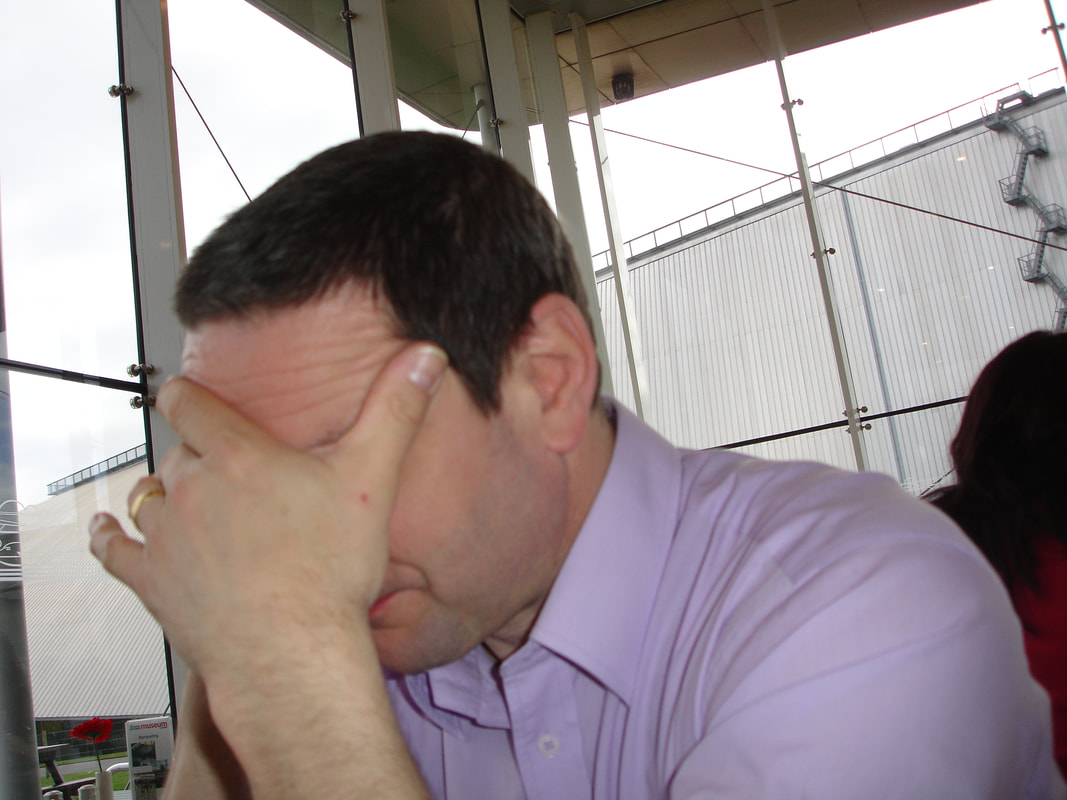
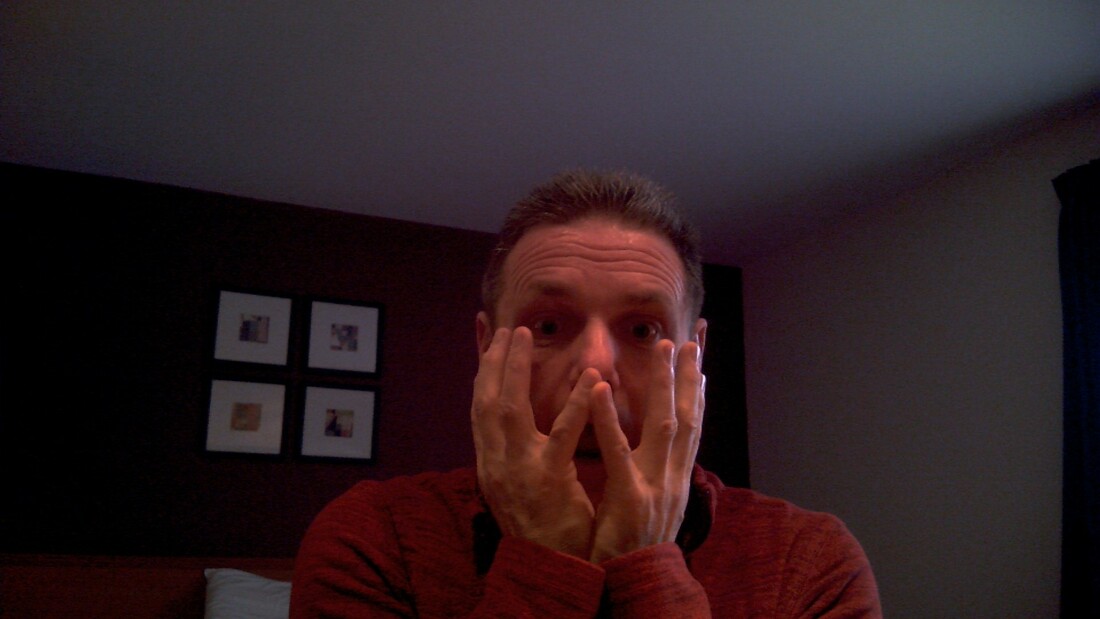

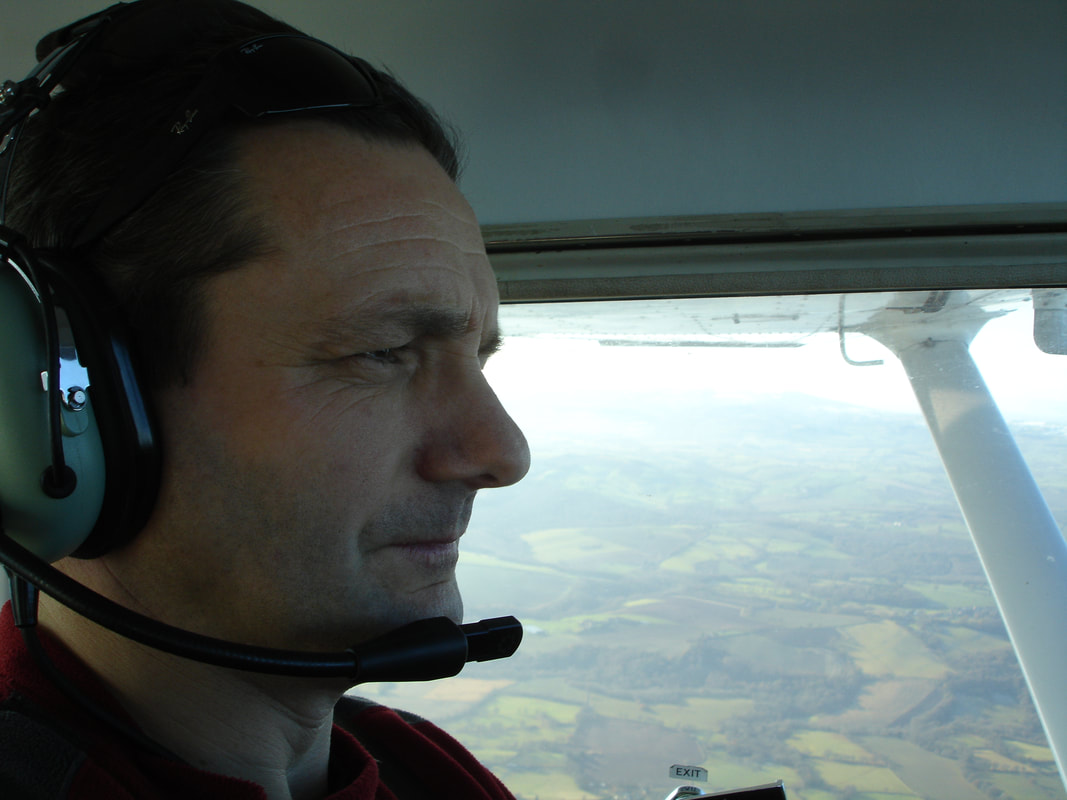
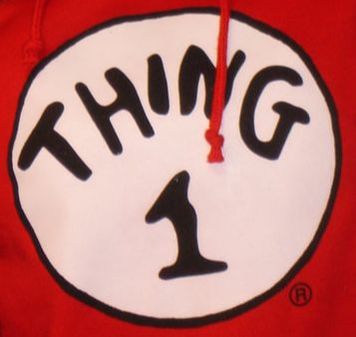

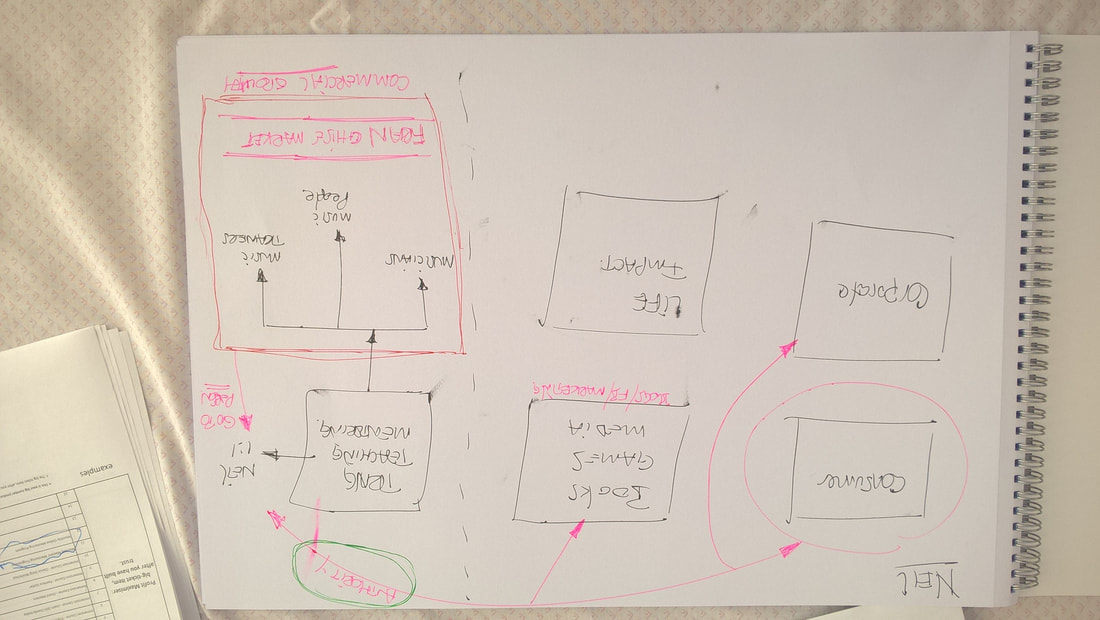
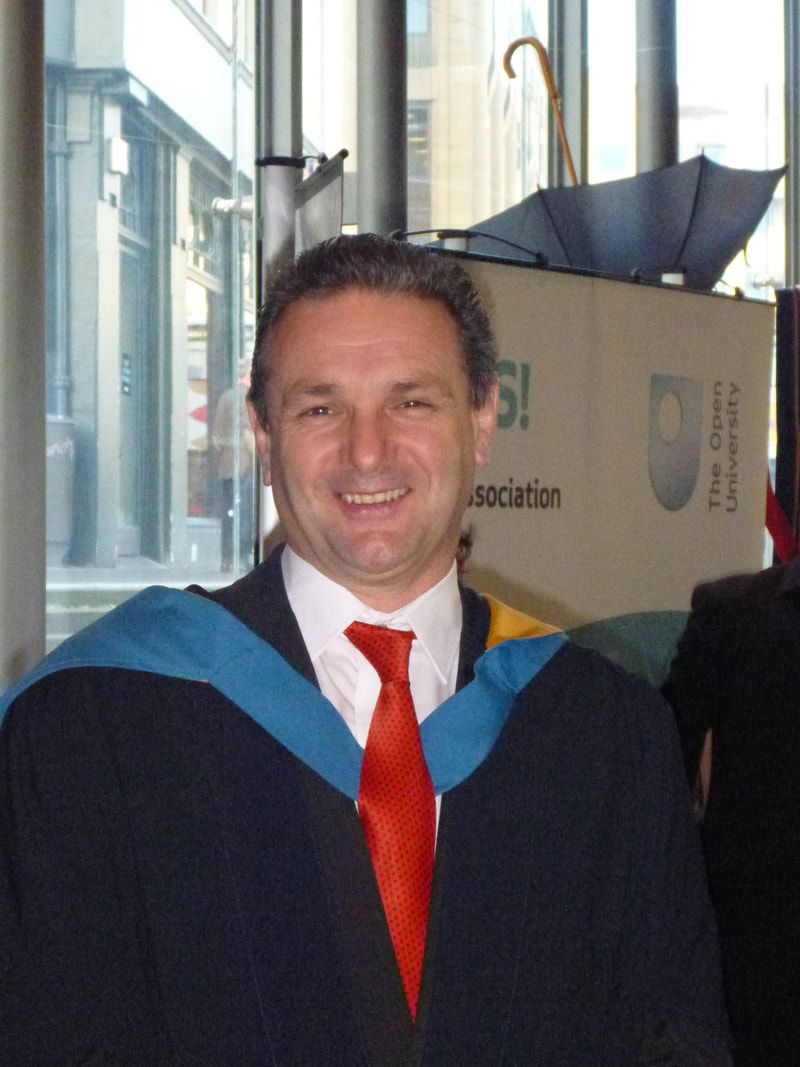
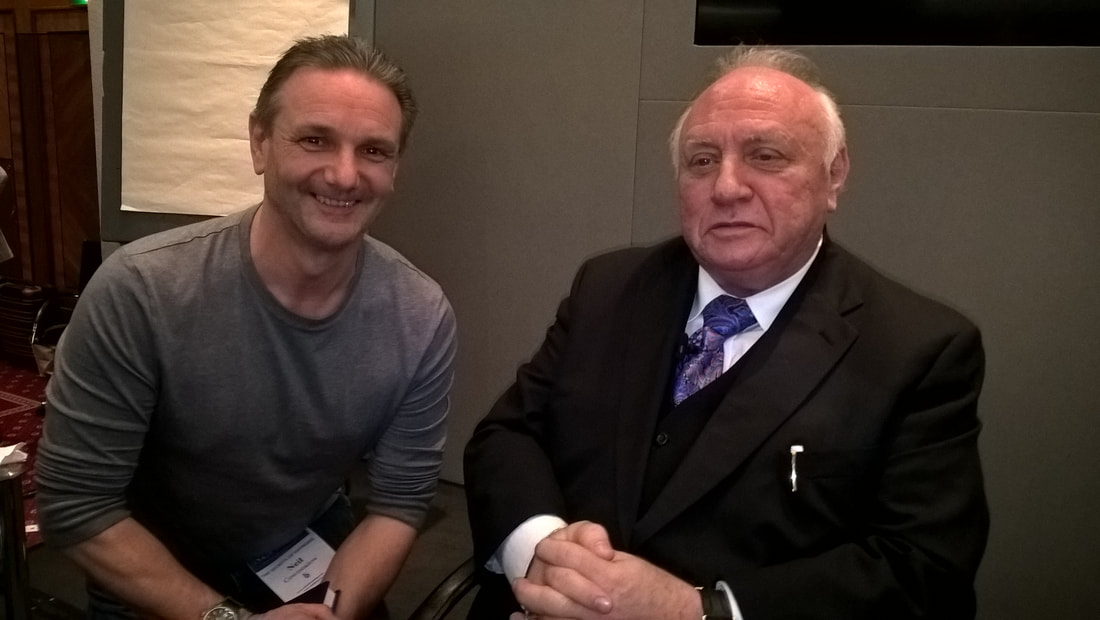



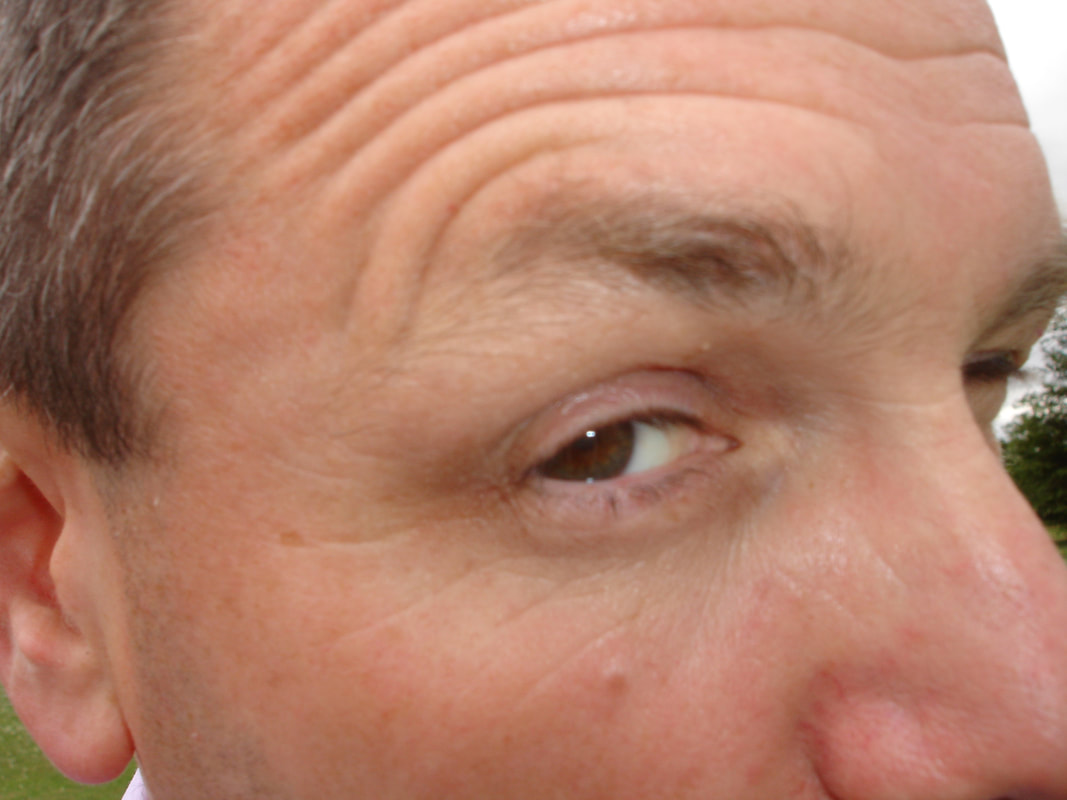



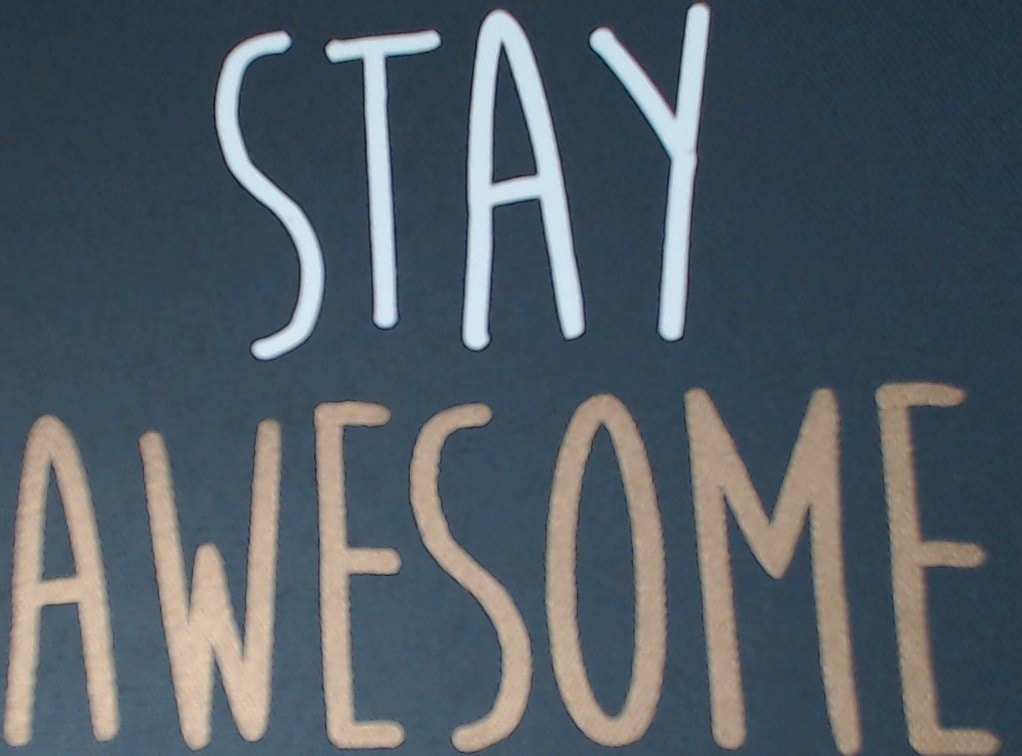
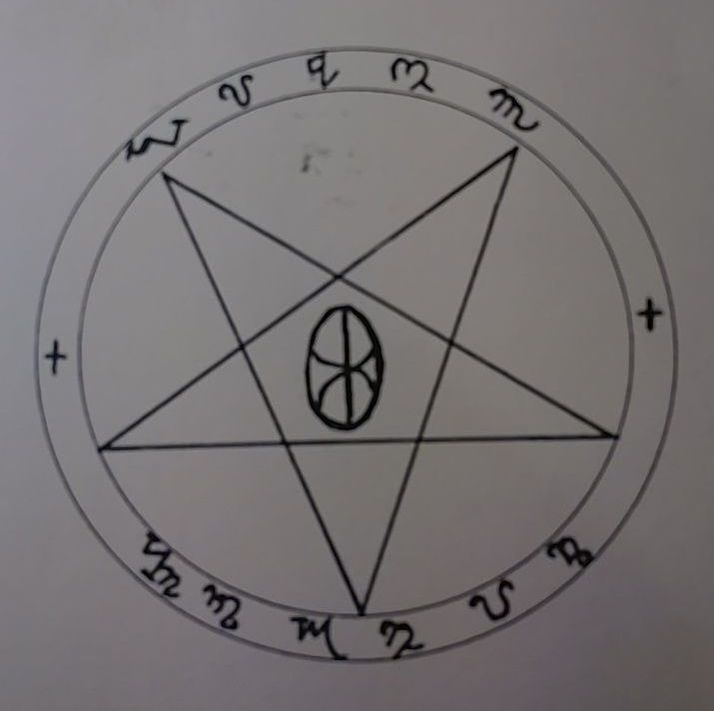
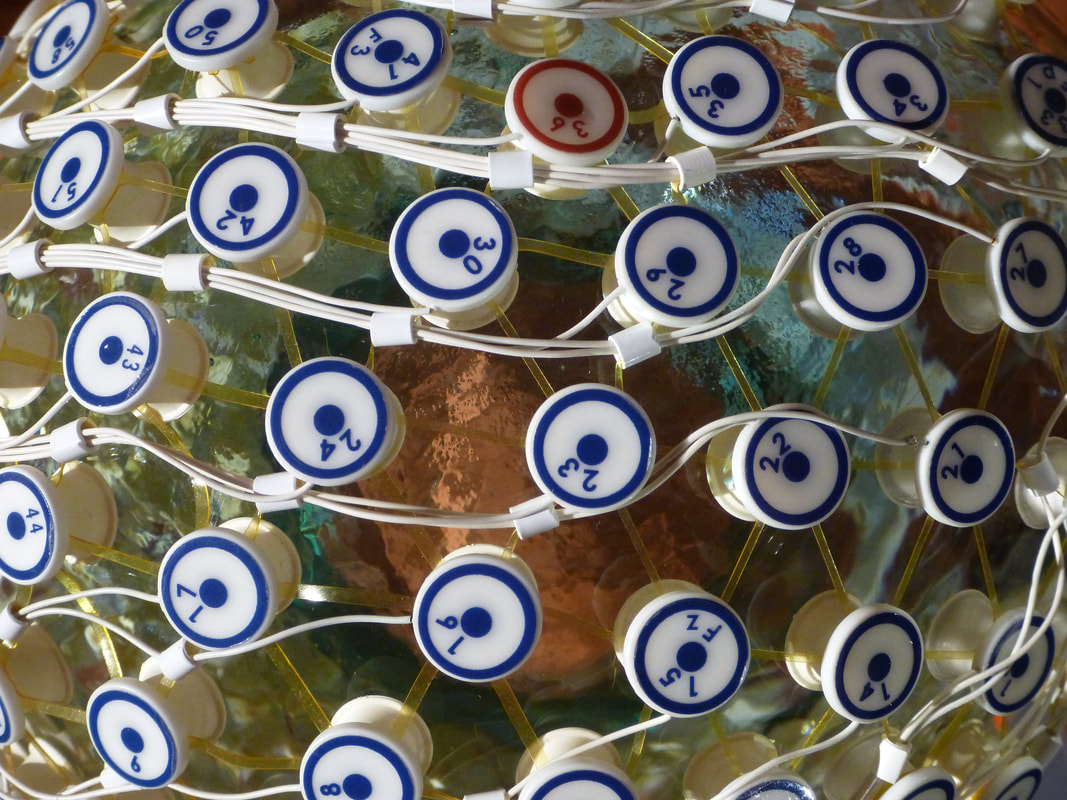

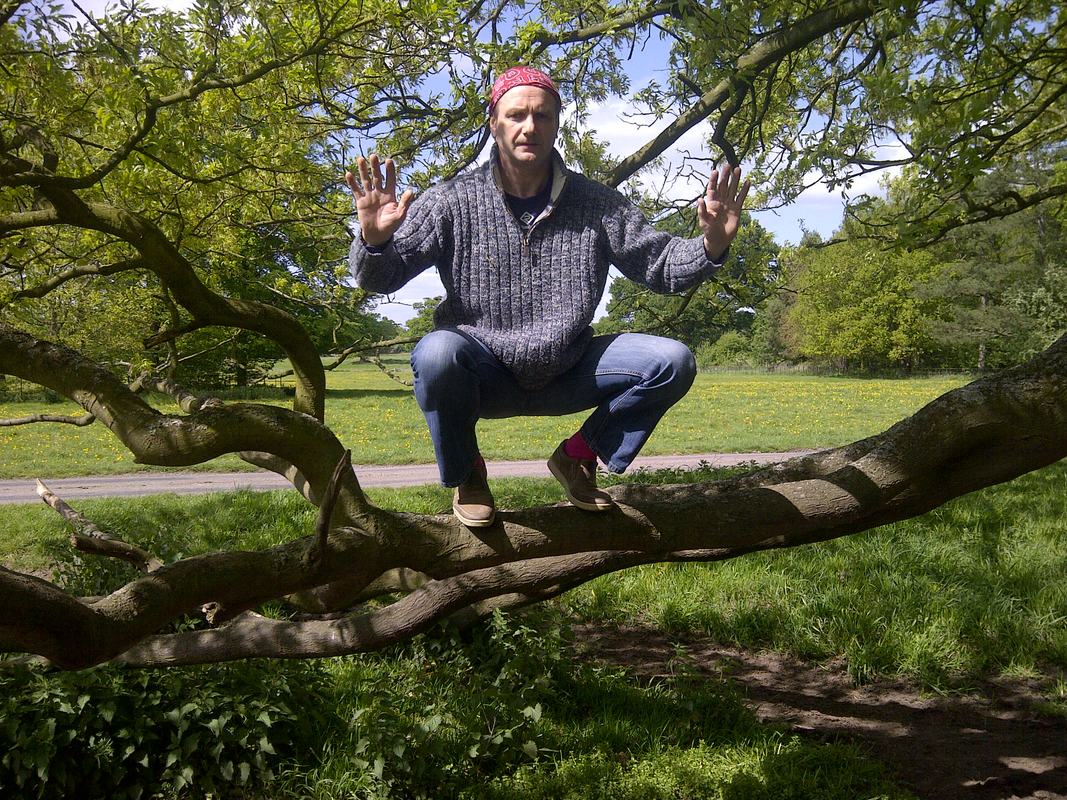
 RSS Feed
RSS Feed